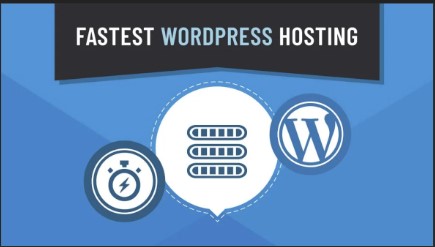Fastest Dedicated Hosting
In the fast-paced world of online business, speed reigns supreme. When it comes to dedicated hosting, the need for speed becomes even more critical.
Let’s delve into why speed is so crucial in dedicated hosting and how it impacts various aspects of online success.
Factors Influencing Speed in Dedicated Hosting
Hardware Specifications and Performance Optimization
When it comes to speed in dedicated hosting, hardware plays a pivotal role. The choice of processors and their speeds can significantly impact the performance of your hosting environment.
Multi-core CPUs offer unparalleled processing power, capable of handling demanding workloads with ease. Moreover, optimizing RAM capacity and speed ensures efficient memory utilization, minimizing bottlenecks and maximizing performance.
Exploring storage options further reveals the need for speed. Solid State Drives (SSDs) outshine traditional Hard Disk Drives (HDDs) in terms of data retrieval speed.
Their lightning-fast read and write speeds translate to snappier load times and seamless data access. Additionally, RAID configurations enhance storage performance by distributing data across multiple drives, reducing latency and improving overall efficiency.
Network In, infrastructure, and connectivity
In the realm of dedicated hosting, a robust network infrastructure is paramount. Bandwidth capacity and network speed dictate the rate at which data can be transferred between servers and end-users. Ensuring ample bandwidth resources and high-speed connections guarantees swift data transfer, minimizing latency and optimizing user experience.
Redundancy and failover mechanisms further fortify the network against potential downtime and disruptions. By implementing redundant network paths and failover protocols, hosting providers ensure uninterrupted service and seamless continuity in the event of network failures or outages.
Examining data center locations sheds light on another crucial aspect of hosting speed. Proximity to the target audience plays a vital role in minimizing latency and maximizing throughput.
Hosting servers closer to end-users reduces the physical distance data needs to travel, resulting in faster response times and improved performance. Moreover, geographic redundancy ensures uninterrupted service by spreading data centers across multiple locations, mitigating the impact of localized outages or disasters.
Comparison of Fastest Dedicated Hosting Providers
Benchmarking Performance Across Industry Leaders
When it comes to selecting the fastest dedicated hosting provider, it’s essential to conduct a thorough comparison of performance metrics across industry leaders.
This involves evaluating various factors, including speed test results, uptime reliability, and user feedback, to determine which provider offers the best combination of speed, reliability, and overall performance.
Speed Test Results
One of the primary metrics used to assess the speed of dedicated hosting providers is the results of speed tests. These tests measure server response times and page load speeds across different providers, providing valuable insights into the performance of their hosting infrastructure.
By conducting speed tests using tools like Pingdom, GTmetrix, or WebPageTest, businesses can objectively evaluate the speed and performance of dedicated hosting providers.
Providers with consistently fast response times and quick page load speeds demonstrate robust infrastructure and efficient resource allocation, making them ideal choices for businesses seeking the fastest hosting solutions.
Uptime Reliability
In addition to speed, uptime reliability is another crucial factor to consider when comparing dedicated hosting providers. Uptime refers to the percentage of time that a server or network is operational and available for use. High uptime percentages indicate reliable service and minimal downtime, ensuring uninterrupted access to websites and applications.
When comparing dedicated hosting providers, businesses should look for providers that offer high uptime guarantees, typically 99.9% or higher.
Providers that consistently meet or exceed their uptime guarantees demonstrate a commitment to reliability and customer satisfaction, making them trustworthy choices for businesses that prioritize uptime and availability.
User Reviews and Feedback
While performance metrics provide valuable insights into the speed and reliability of dedicated hosting providers, user reviews and feedback offer real-world perspectives on the quality of service and customer satisfaction.
By considering the experiences of other users, businesses can gain valuable insights into the performance, reliability, and overall satisfaction with different hosting providers.
Platforms like Trustpilot, G2, and Web Hosting Talk are valuable resources for accessing user reviews and feedback on dedicated hosting providers. Businesses should pay attention to factors such as server speed, uptime reliability, customer support quality, and overall satisfaction when evaluating user reviews and feedback.
Reputation and Track Record
Finally, when comparing dedicated hosting providers, it’s essential to consider their reputation and track record in the industry. Established providers with a long history of delivering reliable service and excellent customer support are typically more trustworthy and dependable than newer or lesser-known providers.
Businesses should research the reputation and track record of dedicated hosting providers by evaluating factors such as industry awards, certifications, and customer testimonials.
Providers with a proven track record of excellence and a strong reputation in the industry are more likely to deliver fast, reliable hosting solutions that meet the needs of businesses seeking the fastest dedicated hosting options.
Benchmarking Performance Across Industry Leaders
When it comes to choosing the fastest dedicated hosting provider, performance metrics are key. Conducting speed tests allows for an objective evaluation of server response times and page load speeds across different providers.
Providers with consistently fast performance metrics indicate robust infrastructure and efficient resource allocation.
Uptime reliability is another critical factor to consider. High uptime percentages reflect a provider’s commitment to delivering reliable service and minimizing downtime.
Analyzing user reviews and feedback provides invaluable insights into the real-world performance of dedicated hosting services. Customers’ experiences and satisfaction levels offer a glimpse into the reliability and consistency of hosting providers, helping prospective clients make informed decisions.
Tips for Optimizing Speed in Dedicated Hosting
Implementing Best Practices for Maximum Performance
Optimizing speed in dedicated hosting goes beyond hardware specifications and network infrastructure; it requires a strategic approach and the implementation of best practices to squeeze every ounce of performance from your server environment.
Fine-Tuning Server Configurations
Fine-tuning server configurations is akin to tuning a finely crafted instrument; it requires precision and expertise to achieve optimal performance. Operating system optimization is the first step in this process, involving the careful adjustment of system settings and parameters to maximize server efficiency.
Leveraging performance-enhancing tweaks and settings within the operating system can yield significant improvements in speed and responsiveness. This may include optimizing kernel parameters, adjusting network settings, and fine-tuning resource allocation to ensure optimal performance under varying workloads.
Similarly, optimizing web server and database software is crucial for unlocking the full potential of your dedicated hosting environment. By fine-tuning server software such as Apache, Nginx, MySQL, or PostgreSQL, you can streamline data processing, improve server response times, and enhance overall performance.
Utilizing Content Delivery Networks (CDNs)
Content Delivery Networks (CDNs) are indispensable tools for optimizing speed and accelerating content delivery in dedicated hosting environments. CDNs work by distributing website content across a network of global servers, reducing the physical distance data needs to travel between the server and end-users.
By caching content on edge servers located closer to end users, CDNs minimize latency and improve page load times, resulting in a smoother and more responsive user experience. Additionally, CDNs offload traffic from the origin server, reducing server load and ensuring consistent performance even during traffic spikes or surges.
Implementing a CDN involves configuring your server to work seamlessly with the CDN provider of your choice and configuring caching rules to optimize content delivery. By strategically caching static assets such as images, CSS, and JavaScript files, you can further reduce load times and improve overall website performance.
Caching Strategies
Caching is a cornerstone of speed optimization in dedicated hosting environments, allowing servers to store frequently accessed data locally for faster retrieval.
By strategically caching content and resources, you can reduce server load, minimize database queries, and improve overall performance.
Several types of caching strategies can be employed to optimize speed in dedicated hosting environments:
– Page Caching: Caching entire web pages to serve them quickly to users without the need for dynamic page generation.
– Object Caching: Caching database queries and other objects to reduce the time needed to fetch data from the database.
– Opcode Caching: Caching compiled PHP code to avoid the overhead of recompiling scripts on each request.
– Browser Caching: Instructing web browsers to cache static assets such as images, CSS, and JavaScript files locally, reducing the need for repeated downloads.
By implementing caching strategies tailored to your specific hosting environment and website requirements, you can significantly improve speed, reduce server load, and enhance overall performance in dedicated hosting environments.
Implementing Best Practices for Maximum Performance
Fine-tuning server configurations is essential for optimizing speed and efficiency in dedicated hosting environments.
Operating system optimization involves leveraging performance-enhancing tweaks and settings to maximize server performance. Similarly, optimizing web server and database software ensures faster data processing and improved server responsiveness.
Utilizing content delivery networks (CDNs) is another effective strategy for accelerating content delivery and optimizing speed.
CDNs distribute content across global servers, reducing latency and improving user experience for audiences worldwide. Implementing caching strategies further enhances speed by caching frequently accessed content locally, reducing server load and speeding up data retrieval.
Conclusion
In conclusion, speed is the lifeblood of dedicated hosting. Faster load times not only enhance user satisfaction but also drive business growth and success. Therefore, it’s imperative for businesses to prioritize speed when choosing a dedicated hosting provider.
By considering factors such as hardware specifications, network infrastructure, and provider performance, businesses can ensure optimal speed and performance in their hosting environments, laying the foundation for online success.





